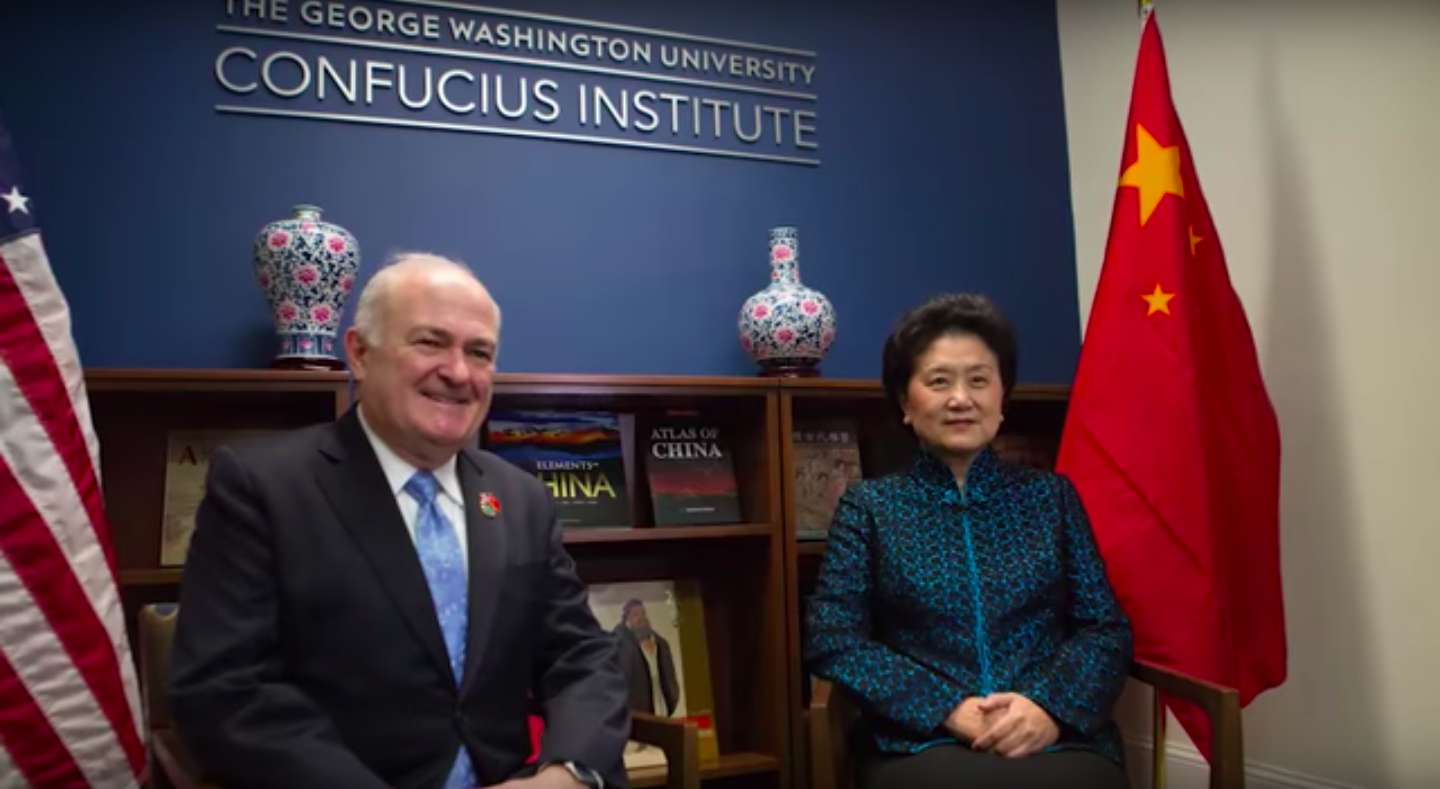In the latest attempt by American legislators to combat foreign propaganda in the United States (US), a pair of bills were introduced on Tuesday (Mar 20).
Bills aim to increase transparency for consumers
The bills aim to raise transparency requirements for foreign media outlets and government-backed institutions which are trying to gain influence in the US.
According to Foreign Policy, the proposed legislation also aims to provide American media consumers with a "greater degree of transparency" regarding Russian government-controlled outlets, such as RT and Sputnik.
These broadcasters are accused of playing a key role in Kremlin-backed propaganda.
Broadcasters that retain editorial independence, such as the BBC and France 24, would not be affected.
What do the bills do exactly?
The first measure is the Countering Foreign Propaganda Act of 2018.
It would require:
- government-controlled foreign media outlets with US operations to file disclosures to the Federal Communications Commission (FCC), and to
- include clear and visible announcements informing American consumers of the foreign government funding the content (much like American campaign ads that contain disclaimers).
The second measure is the Foreign Influence Transparency Act of 2018.
It would require:
- organisations that promote the political agenda of foreign governments to register as foreign agents, and
- universities to disclose donations from foreign sources of US$50,000 (~S$66,000) or more.
This means that the Confucius Institute -- affiliated with the country's Ministry of Education -- has to register as a foreign agent.
Most donations from the institutes, which work with more than 100 American universities currently, are between US$100,000 (~S$131,770) and $150,000 (~S$197,700), allowing them to go unreported in the past.
Confucius Institutes as a propaganda machine?
Since 2004, China has established some 500 government-funded Confucius Institutes in 140 countries.
Besides teaching language and cooking, these institutes host dance troupes as well.
It is widely believed that the Confucius institutes are started to help promote China's soft power abroad.
Former senior party leader Li Changchun has referred to the institutes as an "important part of China's overseas propaganda set-up", as quoted in a report by The Economist.
Chinese officials have also said that expanding the Confucius Institute's reach is a priority.
Even so, there have been times when restrictions are not that strict -- the Confucius Institute in Edinburgh once promoted a talk in 2009 by a dissident Chinese author whose works are banned in China.
[related_story]
Disclosure necessary for "academic freedom"
However, due to growing worries among American parents and academics about political censorship when it comes to topics that the Chinese Communist Party (CCP) deems sensitive or off-limits, such as Tibet, Taiwan, or human rights violations in China, Confucius Institutes have come under increasing scrutiny over the years.
Such worries have led to concerns about academic freedom.
US Representative Joe Wilson who spearheaded efforts for the second bill said that the goal is "transparency by the foreign agents themselves and also by the universities":
"The American people need to know that they are being provided propaganda."
Top image via discovergw/YT
If you like what you read, follow us on Facebook, Instagram, Twitter and Telegram to get the latest updates.
